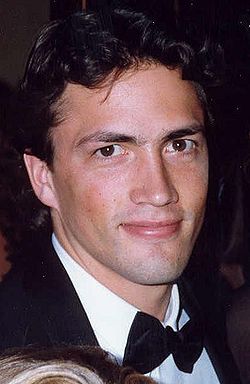| Gracie | |
|---|---|
| Theatrical release poster | |
| Directed by | Davis Guggenheim |
| Screenplay by | Lisa Marie Petersen Karen Janszen |
| Story by | Andrew Shue Davis Guggenheim Ken Himmelman |
| Produced by | Davis Guggenheim Andrew Shue Elisabeth Shue John Shue |
| Starring | Dermot Mulroney Elisabeth Shue Carly Schroeder John Doman Andrew Shue |
| Cinematography | Chris Manley |
| Edited by | Elizabeth Kling |
| Music by | Mark Isham |
| Distributed by | Picturehouse Entertainment |
Release date |
|
Running time | 95 minutes |
| Country | United States |
| Language | English |
| Budget | $9 million |
| Box office | $3.8 million |
Gracie is a 2007 American sports drama film directed by Davis Guggenheim. It stars Carly Schroeder as Gracie Bowen, Dermot Mulroney as Bryan Bowen, Elisabeth Shue as Lindsay Bowen, Jesse Lee Soffer as Johnny Bowen, and Andrew Shue as Coach Owen Clark. [1]
Contents
- Plot
- Cast
- Historical background
- Production
- Development and casting
- Reception
- Reviews
- Box office
- Awards
- Soundtrack
- Songs included in the CD
- Songs not included in the CD
- Soundtrack 2
- See also
- References
- External links
Gracie takes place in New Jersey in 1978, before 1972's Title IX had taken much effect in women's college sports [2] and when organized women's soccer was still very rare in the United States. Gracie, the film's central protagonist, overcomes the loss of her brother by convincing her family and school to allow her to play varsity soccer on an all-boys team. The story is partially based on the childhood experiences of Elisabeth Shue, who was one of the producers in addition to being the wife of Davis Guggenheim, the director, as well as a cast member.
The novelization of Gracie, written by Suzanne Weyn, was released in June 2007. [3]


